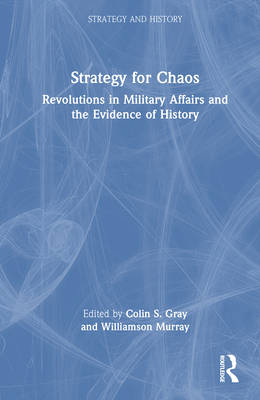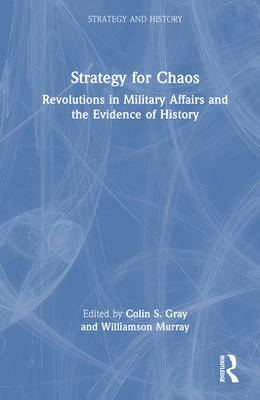
Je cadeautjes zeker op tijd in huis hebben voor de feestdagen? Kom langs in onze winkels en vind het perfecte geschenk!
- Afhalen na 1 uur in een winkel met voorraad
- Gratis thuislevering in België vanaf € 30
- Ruim aanbod met 7 miljoen producten
Je cadeautjes zeker op tijd in huis hebben voor de feestdagen? Kom langs in onze winkels en vind het perfecte geschenk!
- Afhalen na 1 uur in een winkel met voorraad
- Gratis thuislevering in België vanaf € 30
- Ruim aanbod met 7 miljoen producten
Zoeken
€ 381,95
+ 763 punten
Uitvoering
Omschrijving
In this volume, Professor Colin Gray develops and applies the theory and scholarship on the allegedly historical practice of the 'Revolution in Military Affairs' (RMA), in order to improve our comprehension of how and why strategy 'works'. The author explores the RMA hypothesis both theoretically and historically. The book argues that the conduct of an RMA has to be examined as a form of strategic behaviour, which means that, of necessity, it must "work" as strategy works. The great RMA debate of the 1990s is reviewed empathetically, though sceptically, by the author, with every major school of thought allowed its day in court. The author presents three historical RMAs as case studies for his argument: those arguably revealed in the wars of the French Revolution and Napoleon; in World War I; and in the nuclear age. The focus of his analysis is how these grand RMAs functioned strategically. The conclusions that he draws from these empirical exercises are then applied to help us understand what, indeed, is - and what is not - happening with the much vaunted information-technology-led RMA of today.
Specificaties
Betrokkenen
- Auteur(s):
- Uitgeverij:
Inhoud
- Aantal bladzijden:
- 328
- Taal:
- Engels
- Reeks:
Eigenschappen
- Productcode (EAN):
- 9780714651866
- Verschijningsdatum:
- 30/10/2002
- Uitvoering:
- Hardcover
- Formaat:
- Genaaid
- Afmetingen:
- 162 mm x 235 mm
- Gewicht:
- 625 g

Alleen bij Standaard Boekhandel
+ 763 punten op je klantenkaart van Standaard Boekhandel
Beoordelingen
We publiceren alleen reviews die voldoen aan de voorwaarden voor reviews. Bekijk onze voorwaarden voor reviews.









